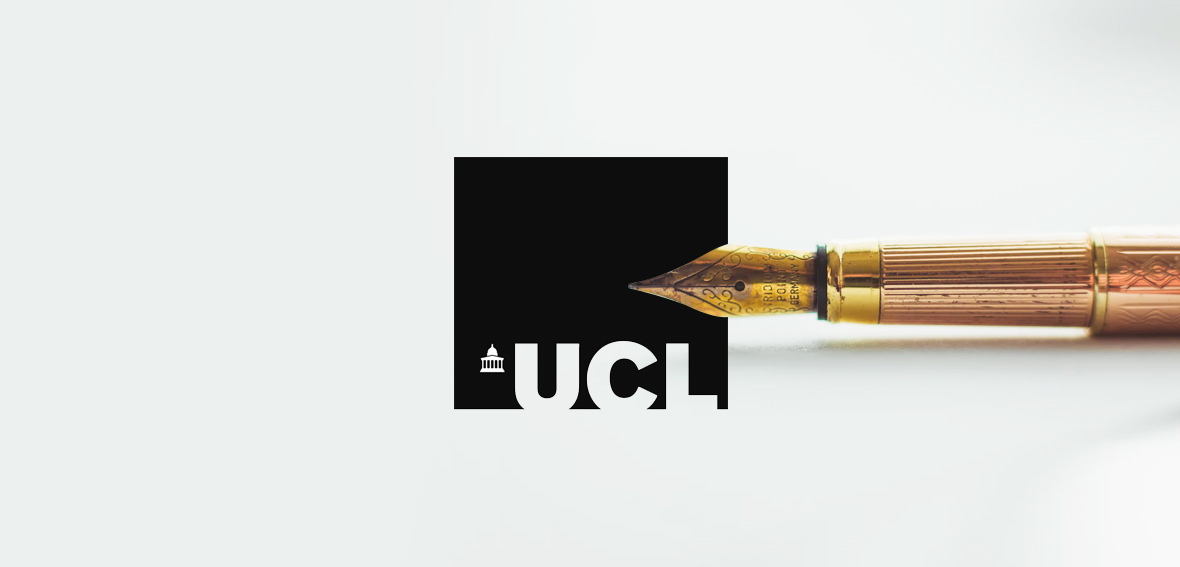Le Personal Statement pour étudier le droit : conseils de rédaction
Pour rédiger son Personal Statement, mieux vaut s’y prendre tôt ! Vous aurez en effet besoin de temps pour parfaire votre lettre, vous relire et vous corriger. Vous ne savez pas comment commencer ? Notre méthodologie vous guide pas à pas pour vous expliquer comment faire. Soyez efficace en réunissant toutes vos idées, en les triant et en les ordonnant en un plan cohérent avant de commencer la rédaction.
Pour savoir quels éléments de votre parcours mettre en valeur dans votre Personal Statement, retrouvez également tous nos conseils. Il existe une multitude de choses dont vous pouvez parler dans votre texte. Lisez nos conseils pour bien les choisir. Une lettre efficace, qui fera forte impression sur le jury d’admission, est une lettre avant tout pertinente. Sachez aussi rester authentique, sincère et positif pour valoriser votre personnalité et vos accomplissements.
Des exemples de Personal Statements pour étudier le droit
Premier exemple
The controversies surrounding the legal arguments for military action in Syria confirms what has become progressively apparent to me when editing the weekly paper at my school: Law encapsulates what constitutes the foundations of society – culture, history, beliefs and values. Law expresses a vision of the world. Law is both intellectual and concrete reality. This is the reason why I want to study it in higher education.
My understanding of what Law really is has grown over time, through various experiences and when reading history, geography and economy. Having lived in London since my childhood means that I have an insight into both the English and French cultures. It is particularly intriguing how culture and history forge the way a country creates its legal environment, for example the Roman Law in France and Common Law in England. On reading Peter Ackroyd’s account of the ” Foundation” of England, I realised how the way Law is created uses different paths to reach the same goal of ruling life: in the UK, through case law and statutes whereas on the Continent Civil Law usually is a codified system. This implies an understanding of the underlying reasons for that, which makes studying Law so exciting.
Interested to discover more about these legal systems I have spent much time in the public galleries of the Supreme Court where I have witnessed many civil appeal cases. This has given me an invaluable insight into the role of a barrister within trial proceedings. Also, I have attended meetings of the Council of “Les Portes-en-Re”, a small village in the Charentes in France. There, I perceived how concrete Law is, dealing with all aspects of the life of the community, from planning permissions and roadworks to social care, jobs and education. Also, it helped me to appreciate how Law is critical to proper decision-making.
It was also eye opening when I did a work experience placement in the Legal Department of Twentieth Century Fox UK in June 2012. There, I became aware of the mutuality of obligation in employment contracts. Working at this company also helped me understand the importance of copyright law and the difficulties of safeguarding intellectual property. I learned that Twentieth Century Fox are very careful in managing their intellectual property rights in particular since the case of Dastar Corp. v. Twentieth Century Fox. The Legal Department frequently alluded to this case in which the US Supreme Court ruled that the primary trademark statute of law in the US could not be applied as the Fox failed to renew their copyright and therefore the material had entered the public domain. I was struck that the specificity of rules and contractual provisions could cost a studio so heavily, and realised why law is vital to business.
In my spare time I like to immerse myself in aviation and I plan to obtain my EASA Part-FCL Light Aircraft Pilot Licence (LAPL) next year. I feel that aviation and Law have much in common as both require rigour and hard work to reach excellence. A pilot must be attentive to every detail and think logically, just like a lawyer must use his critical abilities when studying a case. Also, playing footbal weekly with a group of friends requires from me quick and perceptive decisions, concentration and perseverance – just like Law. I continue to develop similar skills in my role as editor of my school paper. It brings me to debate with contributors, clearly formulate facts and opinions and make editorial decisions. Also, it helps me to get a strong sense of priorities and clearly set and keep in mind the objective I pursue when working on a task. I greatly look forward to studying Law and embarking on a structured course which will guide my, as yet informal, learning with excellent teaching.
Personal Statement de Anonyme
Ce Personal Statement s’ouvre sur une accroche intelligente : le candidat réussit à donner à la fois son point de vue sur le droit et à mentionner qu’il participe au journal de son école. La fin de son introduction lui permet de préciser pourquoi il veut étudier le droit à l’université.
Le second paragraphe permet à l’étudiant de mentionner ses expériences personnelles et en quoi elle lui ont permis de s’intéresser au droit et de se forger une opinion sur cette discipline. En expliquant qu’il est français et qu’il a grandi en Angleterre, il montre qu’il a une perspective double sur le sujet. Il parvient ainsi à afficher un point de vue unique sur la question, le sien.
En expliquant qu’il a déjà assisté à des procès en France et en Angleterre, il dégage une impression d’investissement. Il exprime tout son intérêt pour le droit et sa volonté d’approfondir ses connaissances en expérimentant de manière concrète ce que c’est. Enfin, il détaille son expérience de stage au sein du département juridique d’une grande compagnie pour appuyer d’autant plus son engagement. Cela lui permet de mentionner des problématiques juridiques auxquelles il a pu être confronté en tant que stagiaire ainsi que sa compréhension du sujet.
Son dernier paragraphe conclut sur ses activités extrascolaires et ses loisirs, qu’il rattache avec brio à l’étude du droit. En démontrant qu’il a acquis des compétences qui lui seront utiles pour ses études, il met en valeur sa personnalité et son aptitude à réussir.
Second exemple
Without justice we have neither rights nor real responsibilities. At the Old Bailey Central Criminal Court, watching a murder trial, I saw our justice system at work – an experience which confirmed my keen interest in the study of law. In the trial, scientific analysis of gun-shot residue samples was a crucial component of the witness examination. I was captivated by the prosecutor’s logical methodology and his use of rules and argument in drawing us to share his conclusion.
Undertaking a summer work placement at a City of London corporate law firm showed me a much more prosaic side of the law: the volumes of documents and time expended to garner the arguments were eye-opening. I discovered the mechanics and the process of law. I was assigned different tasks involving research and negotiations which suited my meticulous nature. The firm’s large number of foreign clients made understanding several languages useful, even necessary, and enabled me to contrast different legal systems such as English Common Law and Napoleonic Code. My love of travel and diverse cultures stems from my multicultural background: I am bilingual in English and French and fluent in Spanish. However, computer code is the lingua franca of my generation; I have built a simple iPhone app and am teaching myself coding. In his commentary on the future of law, “Tomorrow’s Lawyers”, Susskind persuasively emphasises ‘virtual’ law and the role of technology.
Public lectures, such as Michael Freeman’s “Rethinking Children’s Rights” colloquium introduced me to both the academic side of the law and the particular issue of it needing to evolve with society. He argued current legislation does not engage children as participants. I was especially impressed by Baroness Hale, the chairperson, and her role in the ‘Williamson v Sec. of State for Education and Employment’ case, as well as her being the first (and only) woman in the Supreme Court. My interest in civil liberties was also fuelled by Helena Kennedy’s “Just Law”; in which she criticises the injustice in the law by weight of evidence. The use of evidence and argument in order to come to a conclusion resonates with my other studies, including modern history. To enrich my history coursework, I visited Delhi last year and discovered its chaotic beauty and incredible past. Analytical and critical thinking, necessary skills in law, are equally key in examining and comparing historical sources, and, prima facie, fundamental to mathematics.
I am co-Editor of our school newspaper “***” in which I write articles on such topics as history, debates, travel, and art. I have been elected thrice by fellow students to be head girl of my year and thoroughly enjoy the responsibility attached to this role, which involves formal liaison with teachers and parents as well as providing pastoral support to pupils. Recently I became the first student from the *** Section of our school to have been voted onto the School Council. I have used the skills I developed in organising an annual 5 km charity race, which has raised 14,000 pounds in its first 2 years. In national politics, I volunteered for several weeks last summer as organiser of a parliamentary selection campaign; assisting with speech writing and administration.
Law teaches us how to write and speak effectively, in preparation for a variety of leadership roles across many fields. The lectures and writings I have been exposed to have shown me the depth and breadth of law as a discipline and a profession, at the core of our society. It is the prospect of being immersed in and challenged by this discipline that draws me to studying law at degree level.
Personal Statement de Anonyme
L’introduction de ce Personal Statement est particulièrement forte. Le candidat décrit en quelques lignes un procès pour meurtre en soulignant ce qui l’a marqué dans ce qu’il a vu. Cela lui permet d’enchaîner sur une autre expérience – cette fois professionnelle – qu’il a vécu et de montrer un autre aspect du droit qu’il a expérimenté.
Cette lettre de motivation est particulièrement pertinente : elle reste entièrement dédiée au droit. Son auteur cite ainsi ses lectures et des conférences auxquelles il a assistées pour montrer son vif intérêt pour le sujet. Il réussit même à mentionner le fait qu’il est trilingue, qu’il code et qu’il a voyagé à Delhi tout en restant parfaitement cohérent. Son approche est efficace : il se sert de toutes ses expériences, personnelles comme professionnelles, pour démontrer qu’il sera un étudiant idéal en droit.
La lettre termine tout aussi efficacement sur les loisirs du candidat, qui met en avant son aptitude à écrire des discours. Son texte, particulièrement bien tourné, a toutes les chances d’attirer l’attention des examinateurs. Il donne à la fois son point de vue sur le droit et exprime toute sa motivation au travers d’exemples concrets très bien choisis.
Pour conclure sur le Personal Statement pour des études de droit
Intégrer un Bachelor de droit au Royaume-Uni requiert non seulement un excellent dossier académique, mais également une lettre de motivation solide. Pour y parvenir, les experts de Caravelle Academy vous donnent toutes les clés. Grâce à leur savoir-faire, ils vous accompagnent et vous enseignent pour vous permettre de constituer votre dossier en toute sérénité.




